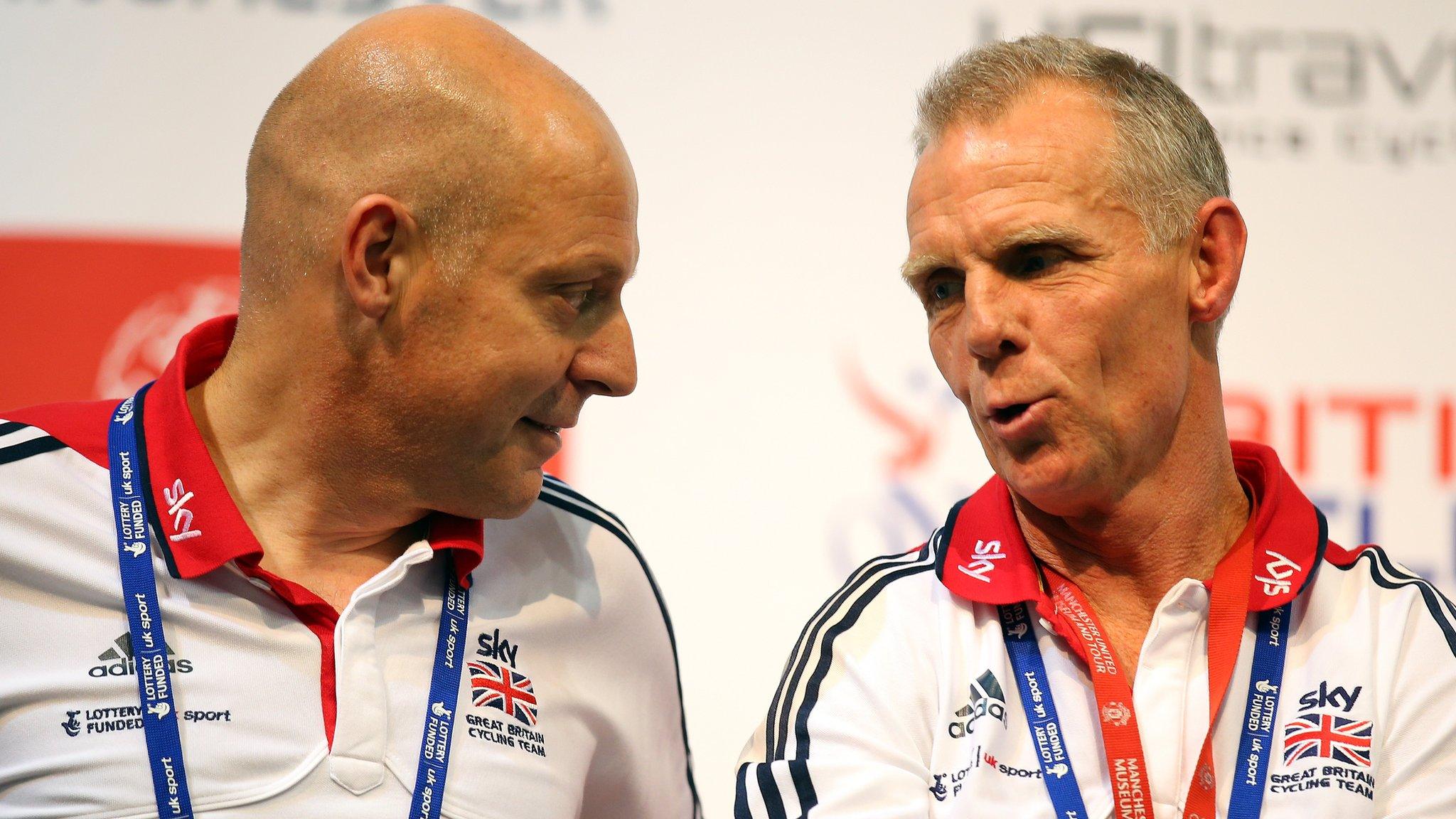Para-swimming: New details emerge from confidential report into 'climate of fear'
- Published
Chairman of British Swimming Maurice Watkins says Para-athletes have been subject to 'unacceptable treatment'
New details have emerged of the "climate of fear" GB Para-swimmers were subjected to by their former head coach.
Among the findings of a confidential final report obtained by BBC Sport, investigators found Rob Greenwood inappropriately disclosed an athlete's medical information, and banned swimmers from leaving hotels "as punishment".
Paralympians were left "visibly distressed" when recounting their experiences to the safeguarding experts looking into allegations of bullying.
It was also concluded that "there was a lack of nurturing, empathy and appreciation for athletes' general well-being".
British Swimming last week apologised to athletes and their families for "unacceptable behaviours".
The governing body released a statement summarising the findings of the investigation, but the BBC can now reveal the full details of the heavily redacted final report.
Greenwood left his job before the investigation began, and it is not known whether he disputes the allegations.
When contacted by the BBC, he declined to comment.
The report is heavily redacted to protect individuals' identities, but the BBC can reveal one member of staff - understood to be Greenwood - was said to have:
"acted in an intimidating manner towards athletes"
"used derogatory terms to describe athletes owing to their disability"
"inappropriately disclosed medical information of a Para-swimmer"
"asked an athlete to perform a task they were unable to do due to their disability"
banned athletes from leaving hotels and confined them to a resort "as a punishment… leaving them unsupervised and unattended whilst abroad or on a training camp".
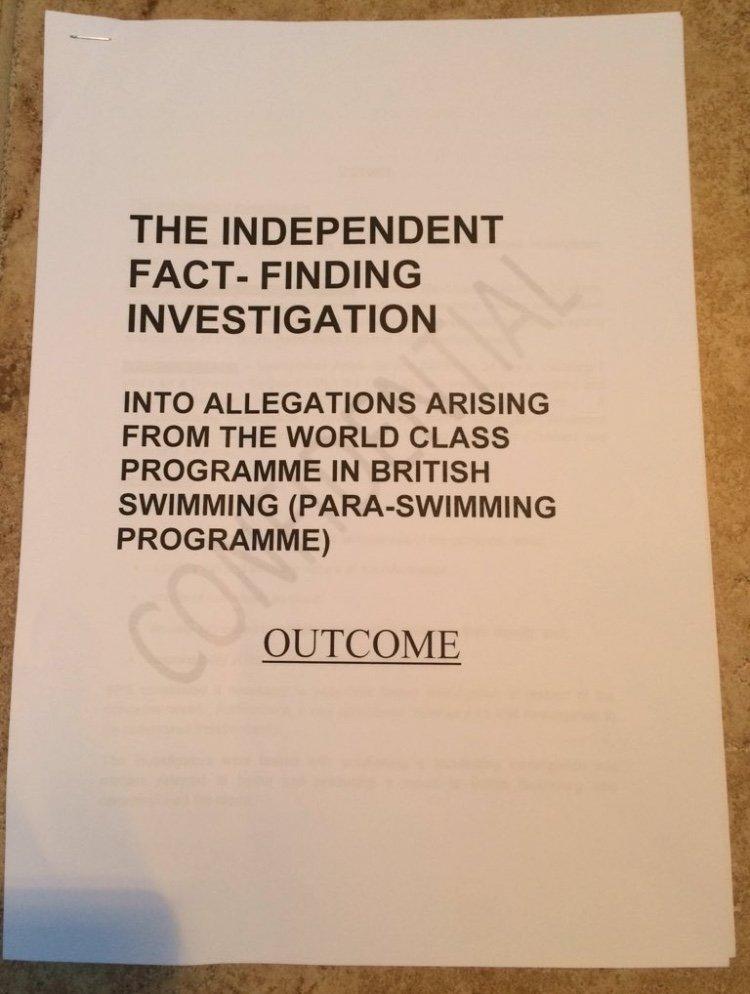
British Swimming last week apologised to athletes and their families for "unacceptable behaviours"
This, despite investigators highlighting the young age of some athletes, and a "wide range of often complex medical conditions and disabilities". The report notes many athletes had no experience of living or travelling independently.
It added that "when recounting their experiences... in the squad under the tutelage" of an unnamed member of staff - understood to be Greenwood - "a number of athletes became visibly distressed. Their recollection was vivid and the impact on them palpable".
According to the report, "there is evidence to show that [Greenwood] used inappropriate language to describe the physical disabilities of athletes which at best is unprofessional. Treating individuals with dignity is the very least skill/quality that you would expect to find in an elite level Paralympic coach".
It also noted that the British Athletes' Commission, which was representing the swimmers, advised that some of the complainants would only talk to a female investigator.
Greenwood has not responded to a request for comment in light of the latest revelations.
British Swimming said last week that a second unnamed member of staff - understood to be National Performance Director Chris Furber - had been disciplined after his management and communication was criticised and found to have showed a "lack of empathy".
British Swimming said he "acknowledged mistakes had been made" and he remains in post at the Manchester-based organisation.
He is not accused of abuse or discrimination, and when contacted by the BBC he also declined to comment.
According to the final report, Furber;
"had the benefit of previous experience in managing individuals with disability. He may have felt more accomplished in pushing the boundaries of challenging athletes and encouraged [Greenwood] to do so. Whilst that was a wholly appropriate objective the methodology was flawed"
"demonstrated a lack of empathy towards athletes, particularly if they did not perform well or were unwell"
"failed to ensure enough management control was exercised over methods of training particularly the use of 'pressure sets'"
Furber has not responded to a request for comment in light of the latest revelations.
According to the investigators, it was suggested to them by members of staff that "the complaints made by athletes have been motivated by retribution for de-selection. In addition it is intimated that because the athletes have complained 'en masse' there has been an element of collusion prior to reporting their concerns".
However the experts say they are "not minded to conclude that either of these assertions were the simple driving factor for athletes making a complaint", making the point that several complainants remained part of the squad.
The investigators said the timing of the complaints after the Rio 2016 Paralympics "seems logical and wholly understandable". They believed that before a Games "an athlete will mentally put aside and be prepared to endure any level of negative treatment to focus on achieving their dream".
In March, BBC Sport revealed Britain's Para-swimming squad - which includes some of the country's youngest and most vulnerable athletes - had become embroiled in a bullying controversy after multiple complaints against a coach.
In February, an independent investigation into the allegations began, and 13 athletes and 10 members of staff were interviewed.
British Swimming says it has committed to a robust action plan in a bid to overhaul its culture.
March 2017: Varnish 'relieved truth is coming out'
Athlete welfare in the spotlight
With a third of governing bodies having been drawn into athlete welfare complaints in recent months, this latest scandal will heighten fears that medal success and UK Sport's 'no-compromise' funding strategy has come at the expense of duty of care.
In June, a report into claims of bullying at British Cycling found a lack of good governance, heard there was "a culture of fear" and criticised UK Sport for missing crucial warning signs.
BBC Sport revealed a senior coach working with Great Britain's Winter Olympic bobsleigh squad has been accused of racism amid multiple complaints over a "toxic atmosphere" in the sport.
The BBC also revealed that police had reopened an investigation into a senior Archery GB coach having been suspended following a complaint to police over an alleged incident involving a young female Para-athlete.
An independent investigation has been launched into "failings" at British Canoeing following claims of abuse.
UK Sport meanwhile has promised a "root and branch review" of culture in high-performance programmes, and appointed a new head of integrity, with chair Dame Katherine Grainger saying that athlete welfare is "a huge concern".
- Published12 October 2017
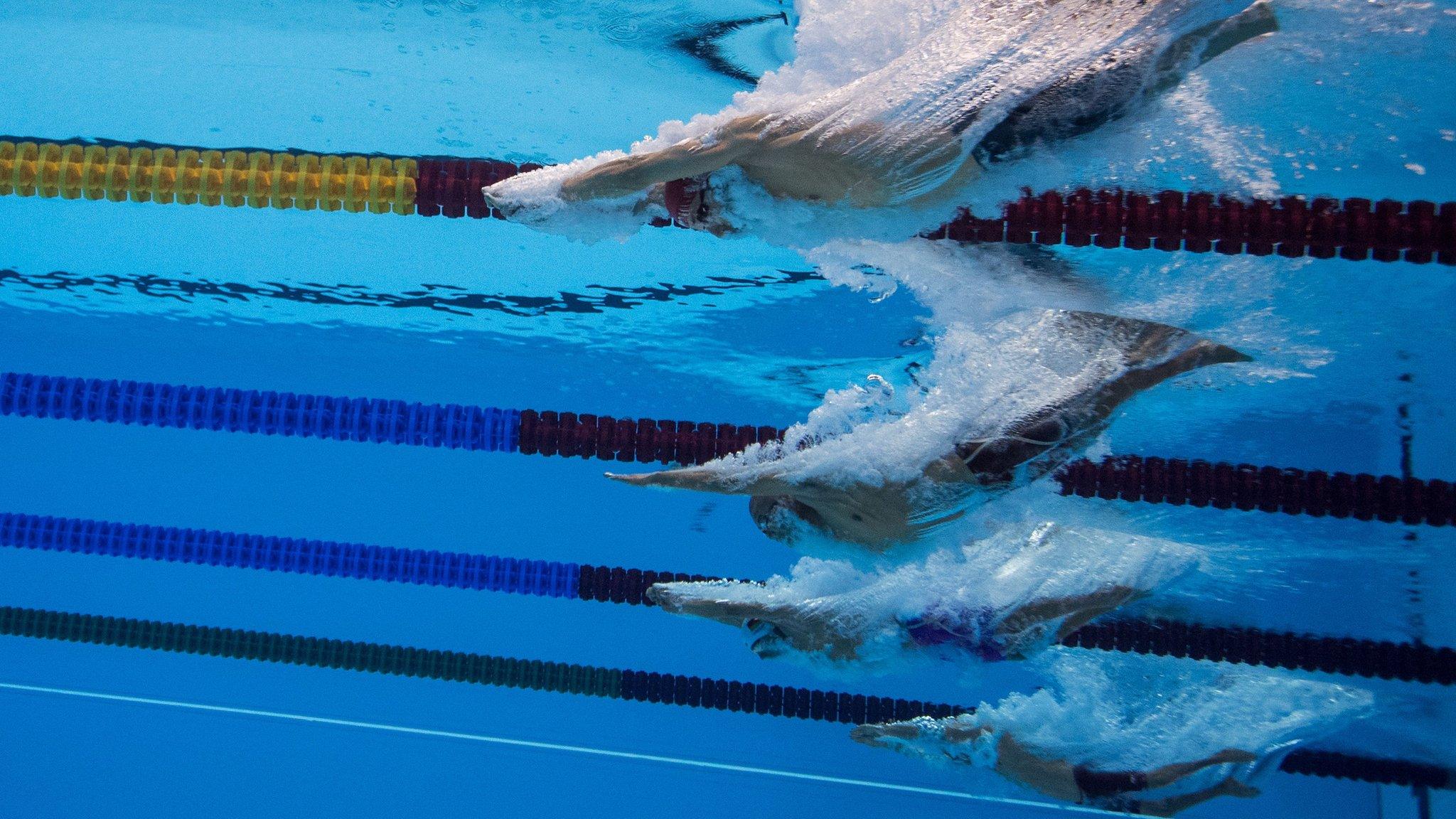
- Published23 March 2017
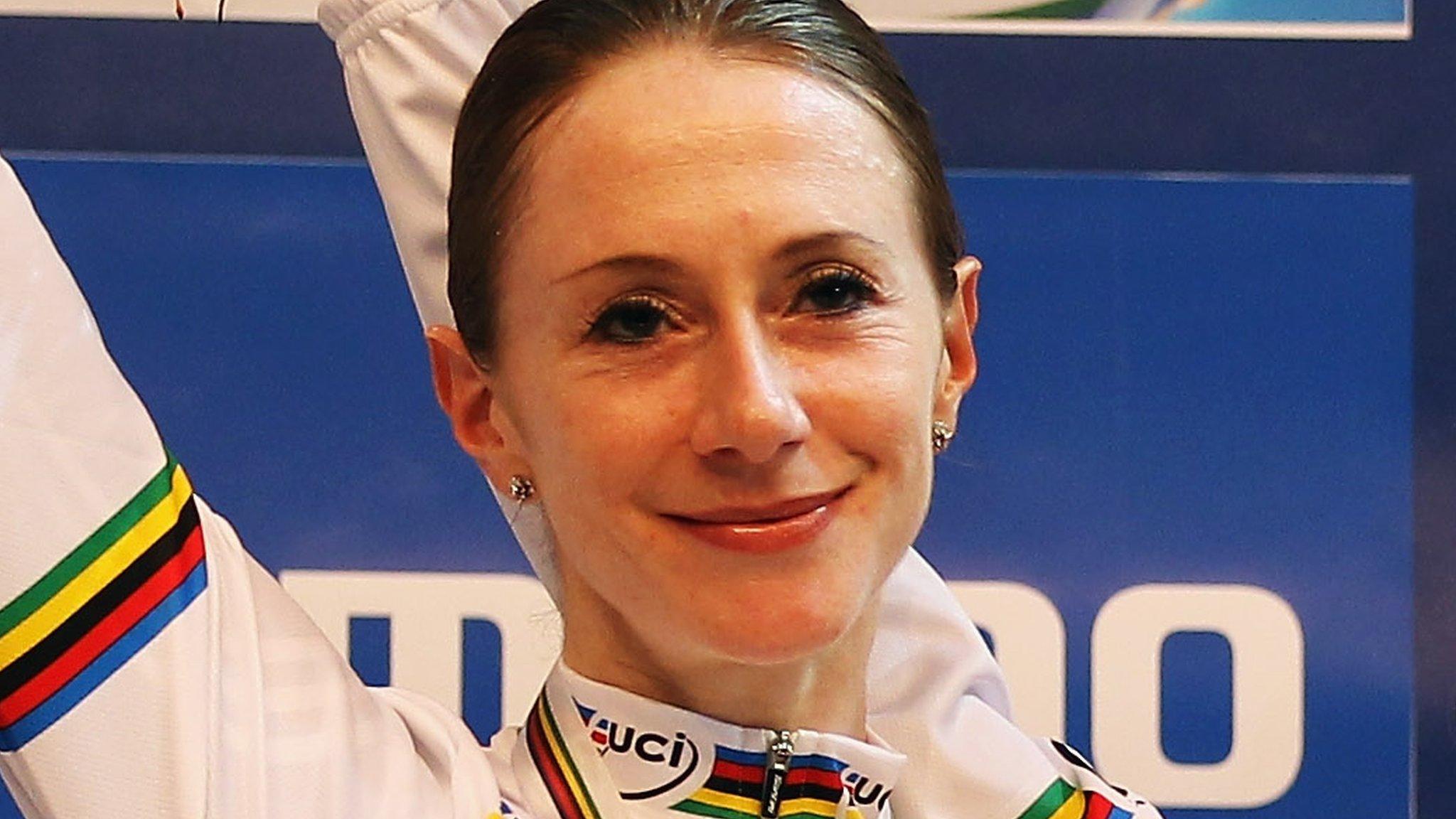
- Published10 March 2017
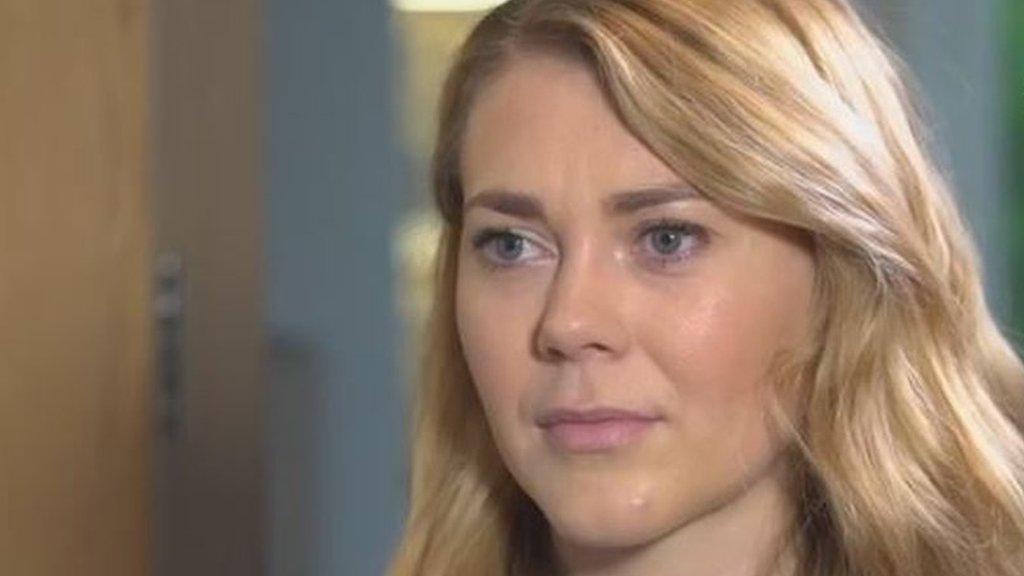
- Published10 March 2017
